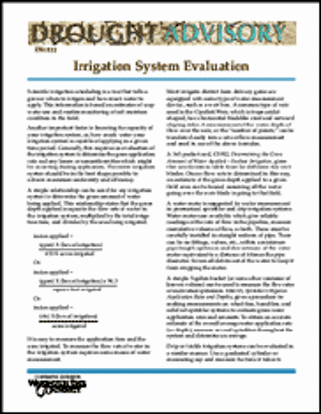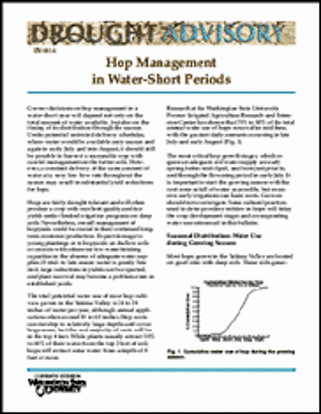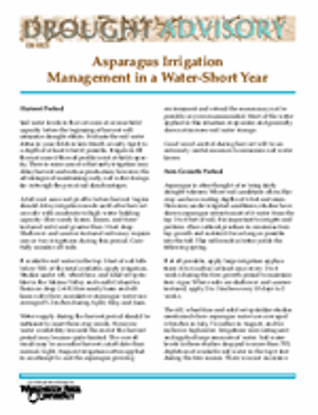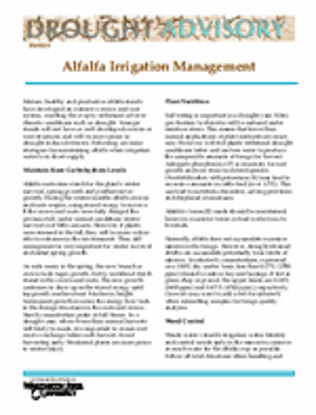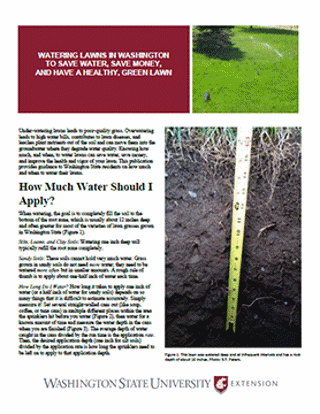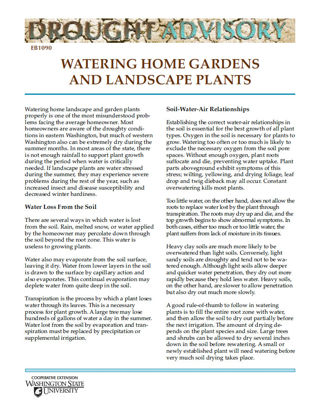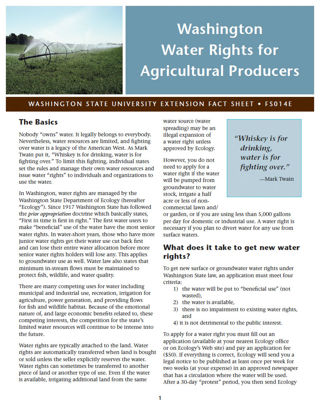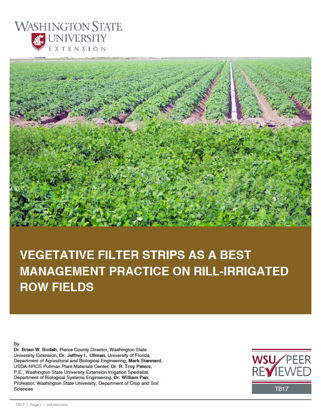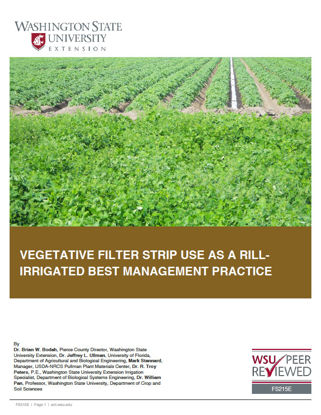You have no items in your shopping cart.
Irrigation and Water
Irrigation and Water
WSU Drought Advisory: Irrigation System Evaluation
This drought advisory bulletin lists methods of evaluating how much water a sprinkler system can deliver in a given amount of time, to help farmers schedule irrigation scientifically for maximum use o ...
$0.00
WSU Drought Advisory: Hop Management in Water-Short Periods
Hop plants are fairly drought resistant. Author offers measures to ensure greater success under dry conditions. Discusses factors influencing some cultivars and water and fertilization patterns for di ...
$0.00
WSU Drought Advisory: Asparagus Irrigation in a Water-Short Year
The primary water absorption root zone for asparagus is down three to four feet in irrigated fields. Fill root zone early when water is short. Weed control becomes especially important in a drought ye ...
$0.00
WSU Drought Advisory: Alfalfa Irrigation with Reduced Water Supplies
Alfalfa grown for forage in the arid Northwest requires 1.8-acre feet to 3.2-acre feet of water per year, depending on length of the growing season. This drought advisory recommends steps to take in l ...
$0.00
Watering Lawns in Washington to Save Water, Save Money, and Have a Healthy, Green Lawn
If you’re finding it difficult knowing exactly how often and how much to water your lawn, this publication is for you!
$0.00
Watering Home Gardens and Landscape Plants
Making the most of available water is a challenge in times of drought. Native plants and grasses survive the best. Authors discuss the relationship of soil, water, and air for plant health. Do you rea ...
$0.00
Washington Water Rights for Agricultural Producers
In Washington State, water rights are managed by the Department of Ecology. This publication gives an overview of water rights and outlines the requirements and procedures for applying for new water r ...
$0.00
Vegetative Filter Strips as a Best Management Practice on Rill-Irrigated Row Fields
Vegetative filter strips (VFSs) are areas of land that have been planted with vegetation in order to intercept and slow down runoff water, capture eroded soil, and increase surface water infiltration. ...
$0.00
Vegetative Filter Strip Use as a Rill-Irrigated Best Management Practice
Water quality is an important aspect of irrigation, but it can be difficult to achieve. On rill-irrigated row crops, vegetative filter strips can be effective as a best management practice for improvi ...
$0.00

